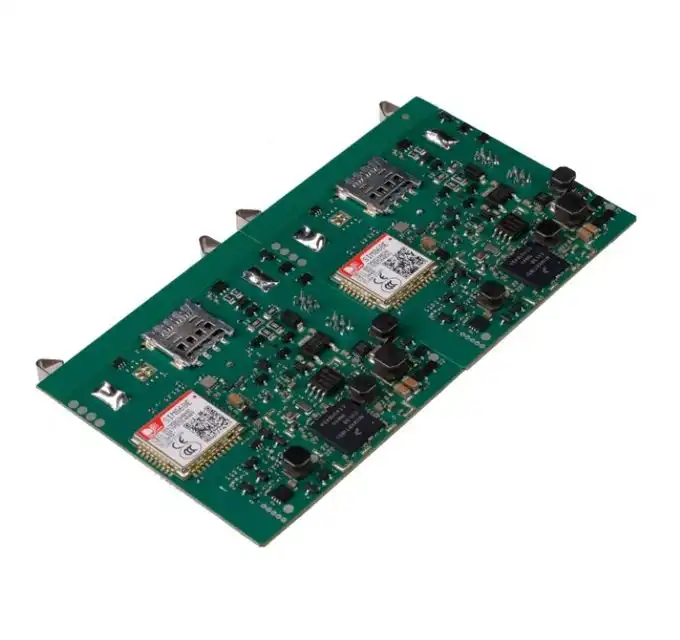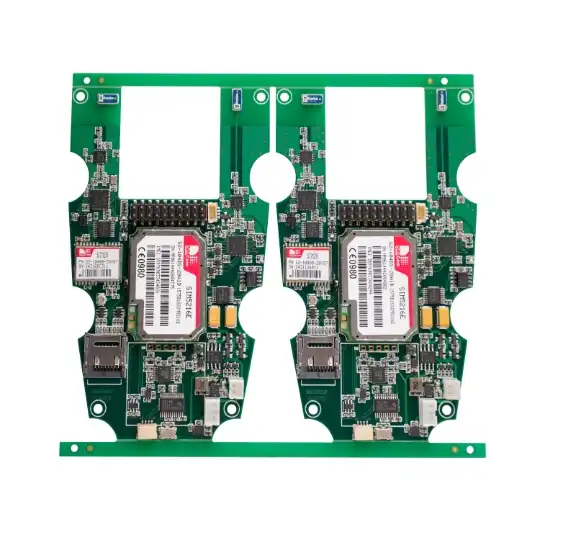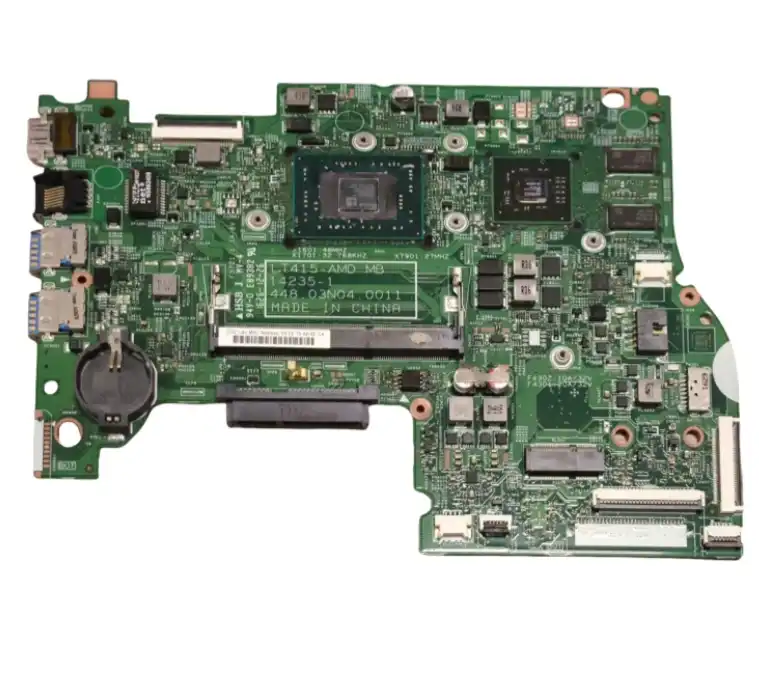Understanding the Importance of Certifications in PCBA Manufacturing
Certifications play a pivotal role in the printed circuit board assembly (PCBA) industry. They serve as a testament to a manufacturer's capabilities, quality standards, and adherence to industry best practices. For businesses seeking a reliable PCBA manufacturer, understanding these certifications is crucial in making an informed decision.
Certifications are not just pieces of paper; they represent a company's commitment to excellence and continuous improvement. They indicate that a PCBA manufacturer has undergone rigorous audits and assessments by independent third-party organizations. This process ensures that the manufacturer meets or exceeds industry standards in various aspects of their operations.
Moreover, certifications provide a level of assurance to customers. When a PCBA manufacturer holds relevant certifications, it demonstrates their ability to consistently produce high-quality products that meet specific industry requirements. This can significantly reduce the risk of defects, delays, and other issues that could potentially impact your product's performance or time-to-market.
The Role of Certifications in Quality Assurance
Quality assurance is a critical aspect of PCBA manufacturing, and certifications play a significant role in this area. Certified manufacturers are required to implement and maintain robust quality management systems. These systems encompass various processes, from incoming material inspection to final product testing, ensuring that every stage of production meets the required quality standards.
For instance, the ISO 9001 certification, which is one of the most recognized quality management standards worldwide, requires companies to have a well-documented quality management system. This system includes procedures for continual improvement, customer satisfaction monitoring, and effective problem-solving methodologies.
By choosing a certified PCBA manufacturer, you're essentially partnering with a company that has a proven track record of quality management. This can lead to fewer defects, improved product reliability, and ultimately, higher customer satisfaction with your end products.
Certifications as Indicators of Technical Expertise
Beyond quality assurance, certifications also serve as indicators of a PCBA manufacturer's technical expertise. Many industry-specific certifications require manufacturers to demonstrate proficiency in particular areas of PCBA production.
For example, the IPC-A-610 certification, which is specific to the electronics industry, ensures that a manufacturer's personnel are trained in the latest PCB assembly standards. This certification covers various aspects of PCBA, including soldering techniques, component placement, and inspection criteria.
Similarly, certifications like AS9100 for the aerospace industry or IATF 16949 for the automotive sector require manufacturers to have specialized knowledge and capabilities relevant to these industries. These certifications often involve additional requirements beyond general quality management, such as traceability systems or specific testing procedures.

Key Certifications to Look for in a PCBA Manufacturer
When evaluating potential PCBA manufacturers, there are several key certifications that you should look for. These certifications cover various aspects of manufacturing, from general quality management to industry-specific requirements. Let's explore some of the most important certifications in detail.
ISO 9001: Quality Management Systems
ISO 9001 is perhaps the most widely recognized certification for quality management systems. It's applicable across industries and provides a framework for consistent quality management practices. A PCBA manufacturer with ISO 9001 certification has demonstrated their ability to:
- Consistently provide products and services that meet customer and regulatory requirements
- Enhance customer satisfaction through effective application of their quality management system
- Address risks and opportunities associated with their context and objectives
- Demonstrate conformity to specified quality management system requirements
IPC-A-610: Acceptability of Electronic Assemblies
The IPC-A-610 standard, often referred to as the "holy grail" of the electronics industry, is specific to PCB assembly. This certification ensures that a manufacturer's personnel are trained in the latest standards for PCB assembly and inspection. Key aspects covered by this certification include:
- Soldering criteria for through-hole and surface mount components
- Component placement and orientation
- Laminate conditions and characteristics
- Cleaning processes and cleanliness assessment
- Coating and encapsulation standards
ISO 13485: Medical Devices Quality Management Systems
For businesses operating in the medical device industry, ISO 13485 certification is crucial. This standard specifies requirements for a quality management system where an organization needs to demonstrate its ability to provide medical devices and related services that consistently meet customer and applicable regulatory requirements.
Key aspects of ISO 13485 include:
- Risk management throughout product realization
- Design and development controls
- Special processes for sterile medical devices
- Verification and validation of processes
- Traceability and record-keeping
AS9100: Quality Management Systems - Requirements for Aviation, Space, and Defense Organizations
AS9100 is the quality management standard specifically for the aerospace industry. It includes ISO 9001 requirements and adds industry-specific requirements for aviation, space, and defense organizations. Key additional requirements include:
- Product safety
- Counterfeit part prevention
- Human factors
- Configuration management
- Risk management
PCBA manufacturers with AS9100 certification are capable of meeting the high standards required in aerospace and defense applications.
IATF 16949: Quality Management System - Automotive Industry
IATF 16949 is the international standard for quality management systems in the automotive industry. It's based on ISO 9001 but includes additional requirements specific to automotive production. Key aspects include:
- Product and process design and development
- Supplier management
- Production part approval process (PPAP)
- Continuous improvement
- Manufacturing process audit
The Impact of Certifications on PCBA Manufacturing Quality and Reliability
Certifications have a profound impact on the quality and reliability of PCBA manufacturing. They go beyond mere compliance with standards; they shape the entire manufacturing process and culture within a company. Let's explore how certifications influence various aspects of PCBA production.
Enhancing Process Control and Consistency
One of the primary benefits of certifications is the enhancement of process control and consistency in PCBA manufacturing. Certified manufacturers are required to implement standardized procedures and workflows, which leads to more predictable and reliable outcomes.
For instance, the ISO 9001 certification mandates the implementation of a process approach to quality management. This involves identifying and managing the various processes within an organization, as well as their interactions. As a result, certified PCBA manufacturers typically have well-defined processes for every stage of production, from initial design review to final testing and packaging.
Driving Continuous Improvement
Certifications are not static achievements; they require ongoing maintenance and periodic recertification. This requirement drives a culture of continuous improvement within certified PCBA manufacturers.
For example, the IATF 16949 standard for the automotive industry places a strong emphasis on continuous improvement. It requires manufacturers to use methodologies like Six Sigma, lean manufacturing, and failure mode and effects analysis (FMEA) to constantly refine their processes and eliminate potential sources of defects.
This focus on continuous improvement leads to several benefits:
- Increased efficiency in production processes
- Reduced waste and cost savings
- Improved product quality over time
- Enhanced ability to meet evolving customer requirements
By choosing a certified PCBA manufacturer, you're partnering with a company that is committed to ongoing improvement and innovation in their manufacturing processes.
Ensuring Compliance with Industry Standards
Different industries have varying requirements when it comes to PCBA manufacturing. Certifications ensure that manufacturers are aware of and compliant with these industry-specific standards. For instance, the AS9100 certification for the aerospace industry includes specific requirements for product safety and the prevention of counterfeit parts. These are critical considerations in aerospace applications where component failure could have catastrophic consequences.
Similarly, the ISO 13485 certification for medical device manufacturing ensures compliance with regulatory requirements specific to the medical industry. This includes stringent requirements for cleanliness, traceability, and risk management.
By verifying a manufacturer's industry-specific certifications, you can ensure that they have the necessary knowledge and processes in place to meet the unique requirements of your industry. This can save time and resources in the long run by reducing the need for additional audits or modifications to meet industry standards.
Fostering a Culture of Quality
Perhaps one of the most significant impacts of certifications is the fostering of a quality-focused culture within PCBA manufacturing organizations. Certifications require buy-in from all levels of the organization, from top management to shop floor workers. This commitment to quality becomes ingrained in the company culture, influencing decision-making processes, employee training, and day-to-day operations. Employees in certified organizations are typically more aware of quality standards and their role in maintaining them.
The result is a workforce that is proactively engaged in quality assurance, rather than viewing it as an afterthought or a burden. This cultural shift can lead to:
- Increased employee engagement and job satisfaction
- More effective problem-solving and error prevention
- Improved communication between different departments
- A stronger focus on customer satisfaction
Conclusion
Certifications play a crucial role in the PCBA manufacturing industry, serving as benchmarks for quality, reliability, and industry compliance. When selecting a PCBA manufacturer, it's essential to consider their certifications as key indicators of their capabilities and commitment to excellence. From general quality management certifications like ISO 9001 to industry-specific standards such as AS9100 for aerospace or IATF 16949 for automotive, each certification provides valuable insights into a manufacturer's processes, expertise, and quality assurance practices.
Remember, while certifications are important, they should be considered alongside other factors such as the manufacturer's experience, technological capabilities, and customer service when making your final decision. By carefully evaluating these aspects, you can find a PCBA manufacturing partner that truly aligns with your needs and contributes to the success of your products.
Top Certifications You Should Look for in a PCBA Manufacturer | Ring PCB
At Ring PCB, we pride ourselves on our comprehensive certifications that validate our commitment to quality and industry standards. Our state-of-the-art PCBA manufacturing facility is equipped with advanced technology, ensuring precision in every aspect of production. From high-density stack-ups to rigorous quality control measures, we deliver superior PCB and PCBA solutions tailored to diverse industry needs. Experience the difference of working with a certified PCBA manufacturer. Contact us at [email protected] to discuss your project requirements.
References
1. Smith, J. (2022). "The Importance of Certifications in PCBA Manufacturing". Journal of Electronics Manufacturing, 15(2), 78-92.
2. Johnson, R. et al. (2021). "Impact of ISO 9001 on PCBA Quality: A Comprehensive Study". International Journal of Quality Assurance, 30(4), 412-428.
3. Brown, A. (2023). "Industry-Specific Certifications for PCBA Manufacturers: A Comparative Analysis". Electronics Manufacturing Technology Review, 18(1), 55-70.
4. Lee, S. and Park, K. (2022). "The Role of Certifications in Fostering Innovation in PCBA Manufacturing". Journal of Manufacturing Systems, 45(3), 201-215.
5. Thompson, E. (2023). "Certifications and Their Impact on PCBA Reliability: A Long-Term Study". Reliability Engineering & System Safety, 220, 108284.






